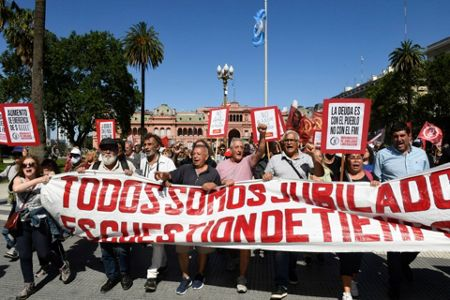In a bold move shaking the Argentine working class to its core, President Javier Milei rolled out a Decree of Necessity and Urgency (DNU) 70/2023, enacting drastic labor law changes that could devastate workers' rights and significantly alter the country's labor landscape. This decree proposes modifications to over 300 regulations, amplifying the scope of the changes to the labor regime while aligning with an extensive deregulation of the economy and the advancement of public company privatization.
The DNU, signed by Milei, introduces comprehensive amendments affecting around 11 labor laws and more than 20 aspects of the Employment Contract Law 20,744, acting as the cornerstone for the rights and obligations of employers and workers. Key points within this decree encompass a considerable impact on protests, employment trial periods, compensation structures, overtime regulations, and even the causes for dismissal.
One of the most contentious sections of the decree lies in its categorization of "essential services" and the constraints imposed on strike actions across various activities. The DNU mandates a minimum service provision during strikes, particularly in sectors deemed of essential importance, restricting the negotiation for less than 75% to 50% coverage based on the service's significance.
Furthermore, the decree extends the trial period for employees from three to eight months, allowing either party to terminate employment during this period without cause or compensation, albeit with an obligation to provide advance notice.
A significant adjustment within the DNU is the reduction of the compensation for unjustified dismissal, halving the compensation amount to one month's salary for each year of service or fraction above three months. Additionally, it introduces the possibility of replacing the compensation regime with private capitalization systems or labor termination funds, all solely at the employer's expense.
The DNU also introduces flexible provisions related to overtime pay, allowing collective agreements to adapt to changes in production methods and working conditions, thereby potentially altering the norms governing working hours.
Notably, the decree modifies "just causes" for dismissal, stipulating that participation in blockades or takeovers of establishments constitutes serious labor injury and, if exercised, can lead to dismissal without compensation. It even permits discriminatory dismissals based on ethnicity, race, nationality, gender identity, or political opinion, undermining constitutional rights and further intensifying job insecurity.
These labor reforms have sparked widespread protests and backlash from major trade unions, social movements, and political parties. Tens of thousands are mobilizing against Milei's decree, condemning the dismissals and the erosion of labor rights. The government's response, including threats to cut social program support for protesters, has further stoked tensions, potentially igniting a major standoff between the administration and the Argentine workforce.
As these protests unfold, the legal battle over the constitutionality of Milei's decree looms, promising a significant clash between the government and workers' rights defenders in the country's courts. The repercussions of these labor reforms have the potential to reshape Argentina's socioeconomic fabric, setting the stage for a pivotal moment in the ongoing struggle for workers' rights and social justice in the country.

